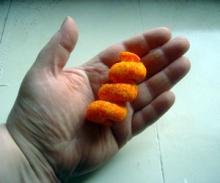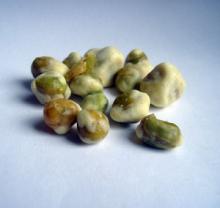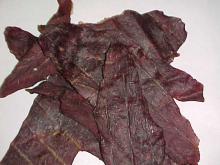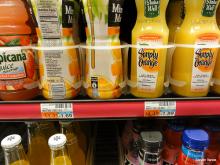Giant Spirals: A Cheeto Too Far?
Have you ever wanted to eat a snack food the size and shape of one of those curly-q compact fluorescent lightbulbs? Then this is your lucky day!
Look, I get it. Manufacturers have a vested interest in making as many different variations of their core product as they can. First of all, it keeps the customers' interest piqued, the same reason why a woman who's been married for ten years might splurge on a new bra-and-panties set from Victoria's Secret. Second of all, it claims even more shelf space for the brand, because stores have to stock the original AND the new variety. And third, I imagine, because they have a whole entire R&D lab dedicated to developing new Cheetos, and obviously those people want to earn their pay.
Look, I get it. Manufacturers have a vested interest in making as many different variations of their core product as they can. First of all, it keeps the customers' interest piqued, the same reason why a woman who's been married for ten years might splurge on a new bra-and-panties set from Victoria's Secret. Second of all, it claims even more shelf space for the brand, because stores have to stock the original AND the new variety. And third, I imagine, because they have a whole entire R&D lab dedicated to developing new Cheetos, and obviously those people want to earn their pay.



